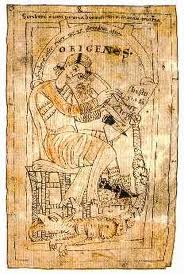Patristic hermeneutics fascinates me. Yes, much of what they say may appear, prima facie, odd and peculiar, and sometimes, outright fanciful. And yet, many in the ancient world have patterns to their exegetical reasoning.
Origen has fascinated me for some time now. In the text below, he highlights one of his hermeneutical ideas by using an image of a door and key. The scriptures provide a picture of a house with many locked doors. Each passage has a key, but it may not unlock a door in its immediate context. The keys, then, are scattered throughout the house. So, the interpreter must acquire and acquire key after key (i.e., reading the Scriptures widely and frequently) in order to begin understanding the complexity of house.
The following passage is taken from Origen, Philocalia, 2.3. (cf. Princ. 4.3.5).
The whole inspired Scripture resembles, on account of its obscurity, many rooms that are locked shut in one house. A key lies next to each room, but it does not correspond to it, and so the keys for the rooms are scattered, each not corresponding to those [rooms] which they lie beside. And it is a great labor both to discover the keys and to match them to the rooms which they are able to open. Therefore we understand these obscure Scriptures when we take starting points for understanding not from any other place than from other passages which have the interpretation dispersed throughout them. At any rate, I think that even the apostle suggests a similar way for understanding the divine words when he says: 'And we speak these things not in words taught by human wisdom but in those taught by the Spirit, comparing spiritual things with spiritual things' [1 Cor 2:13].



